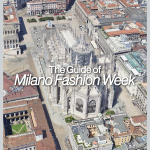
TikTok is ruining pop music
Between missing bridges and angry singers

November 14th, 2022
Since its explosion in the pandemic period, TikTok has become an essential promotion weapon for the music industry, attentive to the talents on the platform and its dynamics and mechanisms. Charlie Puth and GAYLE are just two of the names that in the last period owe a lot to the Chinese app's algorithm, which is capable of scroll strokes of giving celebrity as much to artists as to songs. But at what price? Boy Jr., a tiktoker with more than 300 thousand followers, pointed out how the app's algorithm has contributed to the disappearance of the bridge from songs, destroying the classic structure of pop songs made up of two choruses and two verses usually differentiated by the presence of a bridge, a structural section that has no analogies with the canonical ones. The change stems mainly from the need to unify the songs throughout, thus making them as faithful as possible to that short viral excerpt you may hear while scrolling through your TikTok's "For You Page."
@boyjr.69 Not a judgement just an observation #popsongs #songwriting #80smusic #videokilledtheradiostarstar #clonesquad #greenscreen original sound - Boy Jr.
Something similar happened with Carly Rae Jepsen's latest single, The Loneliest Time, whose TikTok used to promote the song - with 4 million views with 1.5 million likes - uses the bridge of the song, contrary to what usually happens with other songs. As told by tiktoker Sinjun, the virality of the video created a strange wave of complaints triggered by those who judged the TikTok posted by the singer to be "clickbait" because the rest of the song does not sound like the part that went viral on the platform. The controversy, if we want to call it that, is a direct consequence of the way TikTok promotes music in which the part that goes viral is, precisely, the chorus, thus creating in users the belief that those seconds listened to on the app must inevitably be the calling card of the song in question. But if pop music has an obligation to adapt to the current culture, in this case to the way songs are listened to, this change does not always have a positive connotation.
this is ridiculous shdjsjjsj pic.twitter.com/eec0RNEUPz
— j a d a (@jadawadas) October 17, 2022
Steve Lacy knows something about this. A few weeks ago, a video of the singer went viral in which the audience didn't sing along with the chorus during a live performance of Bad Habit, leading to an awkward silence in the hall. The same happened to Central Cee, the British rapper made famous with Doja, who is now used to total silence in each of his live shows following the first verse of his hit. Maybe it's not always about the chorus, but there is no denying that TikTok has changed the way music is heard and experienced for much of Gen Z. Whereas in the past hits were discovered on the radio and then moved to MySpace and later to Spotify and Apple Music compilations, today it is the thirty seconds of TikTok audio that determines the success and failure of a song. With all the risks involved.





















































